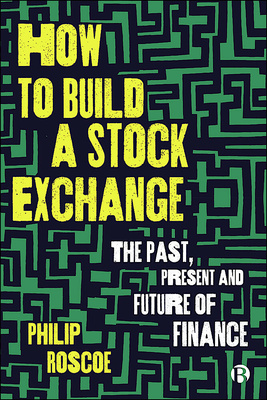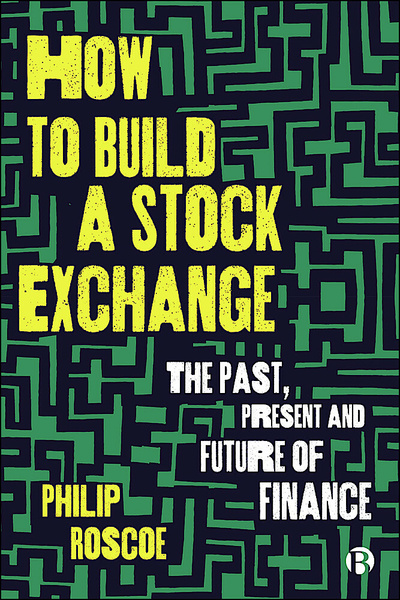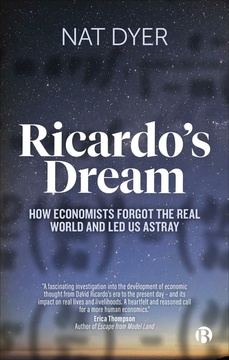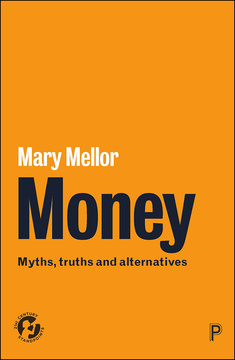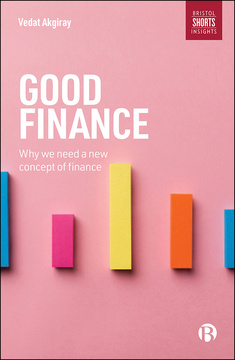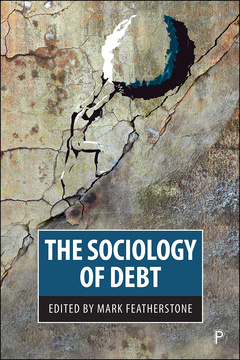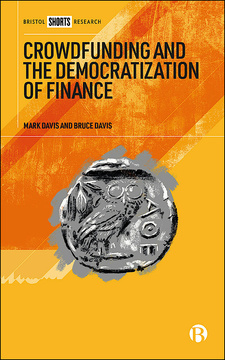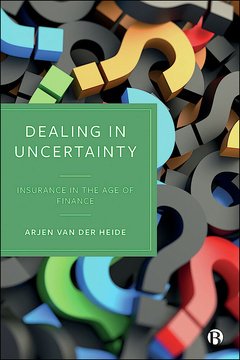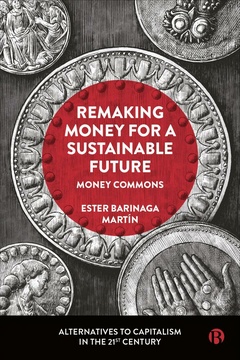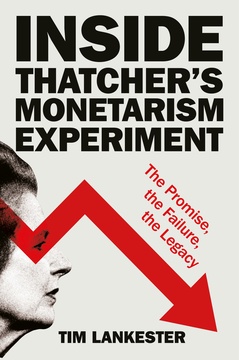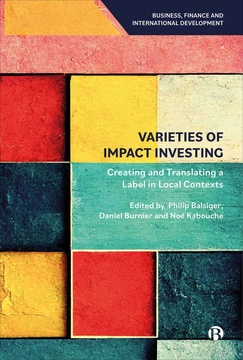Published
Mar 31, 2023Page count
218 pagesISBN
978-1529224320Dimensions
234 x 156 mmImprint
Bristol University PressPublished
Mar 31, 2023Page count
218 pagesISBN
978-1529224313Dimensions
234 x 156 mmImprint
Bristol University PressPublished
Mar 31, 2023Page count
218 pagesISBN
978-1529224337Dimensions
234 x 156 mmImprint
Bristol University PressPublished
Mar 31, 2023Page count
218 pagesISBN
978-1529224337Dimensions
234 x 156 mmImprint
Bristol University PressWhy is finance so important? How do stock markets work and what do they really do? Most importantly, what might finance be and what could we expect from it?
Exploring contemporary finance via the development of stock exchanges, markets and the links with states, Roscoe mingles historical and technical detail with humorous anecdotes and lively portraits of market participants.
Deftly combining research and autobiographical vignettes, he offers a cautionary tale about the drive of financial markets towards expropriation, capture and exclusion. Positioning financial markets as central devices in the organization of the global economy, he includes contemporary concerns over inequality, climate emergency and (de)colonialism and concludes by wondering, in the market’s own angst-filled voice, what the future for finance might be, and how we might get there.
“Roscoe writes beautifully. He skilfully weaves together finance’s past, his own experiences as a financial journalist, and the best new social science research on markets, asking profound and important questions about the financial system and its place in modern life.” Donald MacKenzie, University of Edinburgh
“Brilliantly exposes the toxicity and the mystery of stock markets with vivid examples, while tackling complex topics such as shareholder politics and pricing theory to demystify the history of the stock exchange. Beautifully written and a real pleasure to read.” Joyce Goggin, University of Amsterdam
“Much in the way that the early Methodists pondered why it was that the Devil had all the best tunes, before using this as inspiration for writing toe-tapping hymns, Philip Roscoe, in this excellent and entertaining book, seeks to develop a counter-narrative to the stories that have been produced by and about the financial system. These stories give it a power and authority way above its station and that have been proved to be both damaging and destructive. Drawing on a wide range of sources, including from his pre-academic career in the foothills of the financial system, Roscoe tells alternative stories of finance to emphasize how its institutions are all too human inventions that are highly fallible but also open to reinvention, if only we make sufficient effort to understand them and, importantly, to think carefully about ways in which they might be rebuilt.” Andrew Leyshon, University of Nottingham
“A rare phenomenon – succeeds in both demystifying an object with a technical and arcane history and a genuine delight to read. It is an authoritative account that demonstrates exactly why stock markets should not be left to financiers and economists.” Liz Mcfall, University of Edinburgh
“A superbly written and urgent book which makes complex issues lucid. If you want to enjoy finding out how we got to where we are now, and what’s wrong with our financial system, read Roscoe.” Martin Parker, University of Bristol Business School
"Far from a dull manual on the technical aspects of stock exchange building, Philip Roscoe’s How to Build a Stock Exchange presents a delightfully readable and engaging collection of vignettes on the history of the stock exchange." LSE
Philip Roscoe is Professor in Management at the University of St Andrews. His research takes a sociological approach to markets and finance. A former journalist, he was one of the first BBC Radio 3’s New Generation Thinkers.
Prologue: A Bad Kind of Magic?
1. Why We Should Care about Finance
Part 1: How the Markets Became
2. From Future Pigs to Present Prices, a Chicago Story
3. King William’s Overdraft
4. Mind Your Eye!
5. God Bless Margaret Thatcher
Part 2: The Spectacular Science of Money
6. Finding Prices, Making Prices
7. Where Real Men Make Real Money
8. Wires! Shocks! Sausages!
Part 3: Opportunity Lost
9. Other People’s Money
10. Fear and Loathing on Wall Street
11. The Burden of Empire
12. Extractive Industries
Part 4: Financial Futures
13: Finance Takes Flight
14. The Temples of Capitalism
Epilogue: The Market Replies







